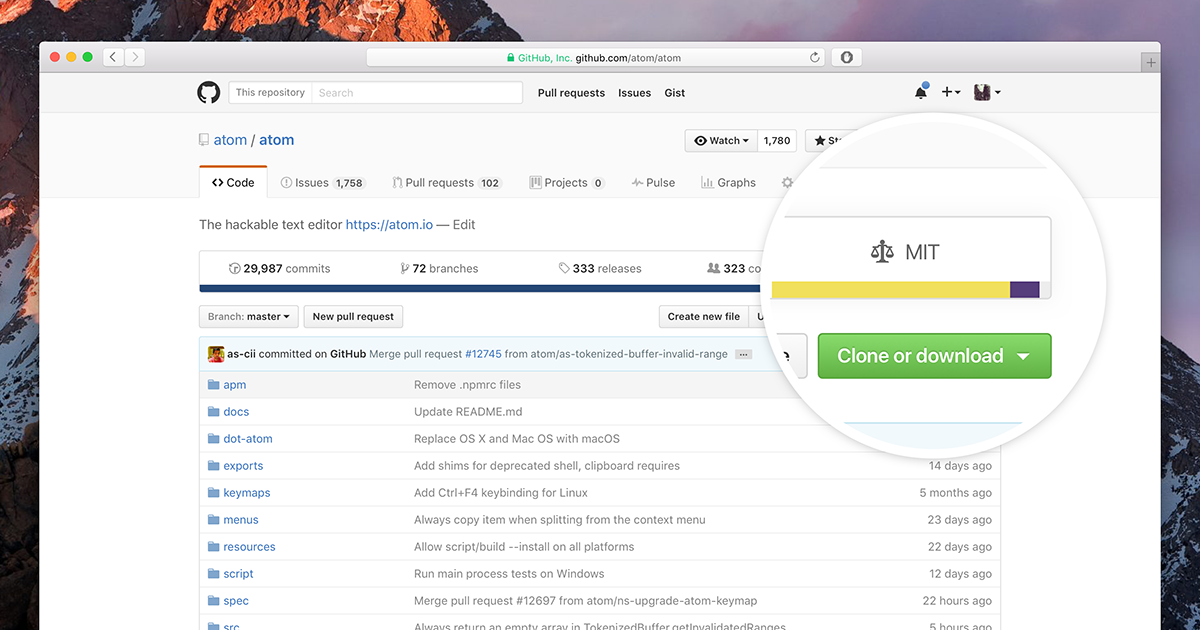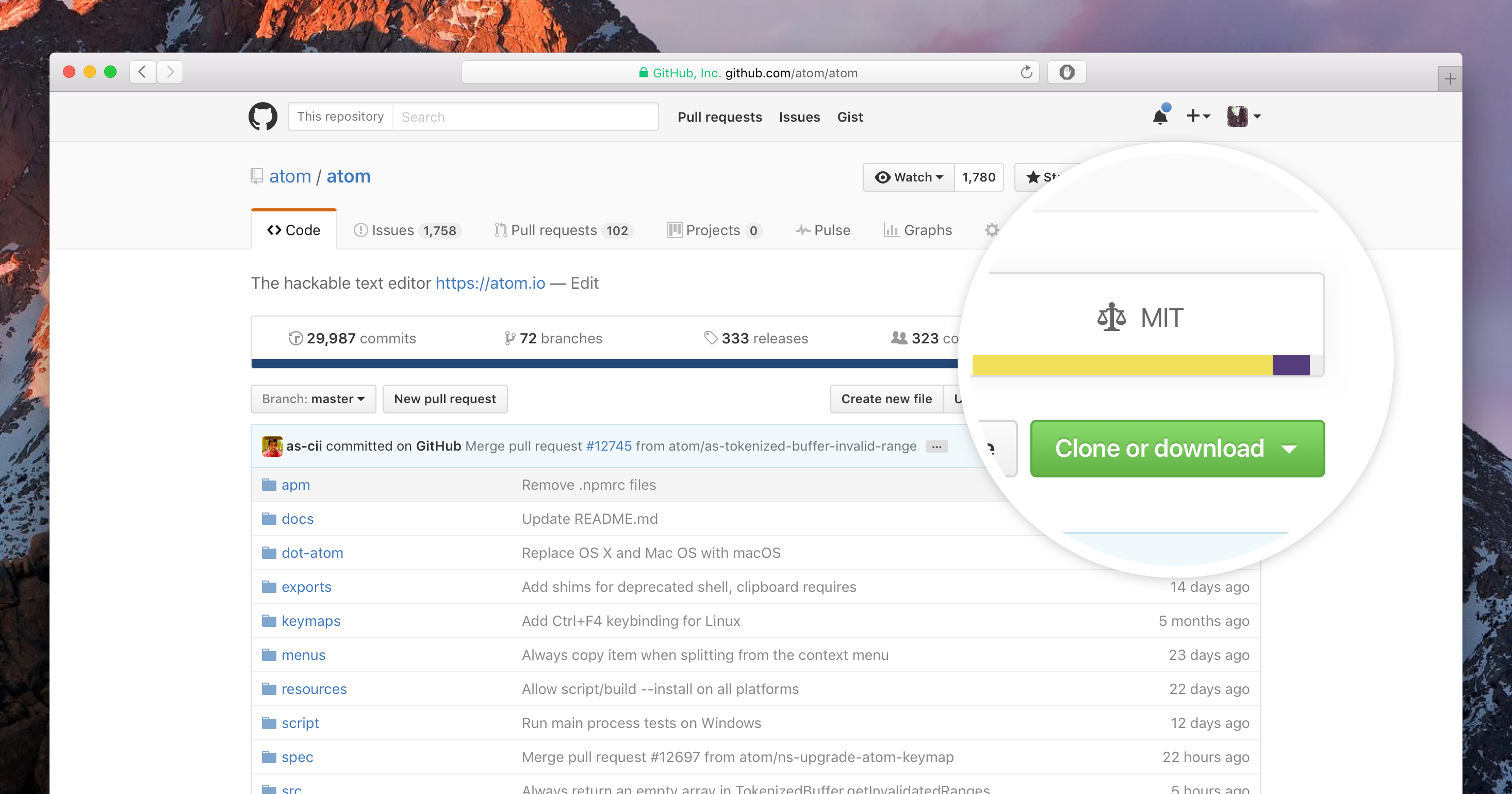License now displayed on repository overview
Licenses are now displayed in the repository overview, allowing anyone to easily see if a project has an open source license. This change is immediately available on GitHub, and will…

Licenses are now displayed in the repository overview, allowing anyone to easily see if a project has an open source license. This change is immediately available on GitHub, and will also ship with the upcoming Enterprise 2.8 release.
A shortened license name, linking to the repository’s license file, is displayed on the repository page:

We use an open source Ruby gem called Licensee to compare the repository’s LICENSE file to a short list of known licenses. This is the same code we use to provide the Licenses API and understand how repositories on GitHub are licensed.
We don’t detect every open source license, nor complicated situations such as projects with multiple licenses. For those situations you can still find and read the project’s license(s) as before.
Open source is a fundamental part of GitHub’s community. Adding an open source license to your repository ensures that others can use, copy, modify, and contribute back to your project. It’s an important step when creating an open source project. If your repository doesn’t have an open source license and you want others to get involved, consider adding one now.
Written by
Related posts

GitHub availability report: January 2026
In January, we experienced two incidents that resulted in degraded performance across GitHub services.

Pick your agent: Use Claude and Codex on Agent HQ
Claude by Anthropic and OpenAI Codex are now available in public preview on GitHub and VS Code with a Copilot Pro+ or Copilot Enterprise subscription. Here’s what you need to know and how to get started today.

What the fastest-growing tools reveal about how software is being built
What languages are growing fastest, and why? What about the projects that people are interested in the most? Where are new developers cutting their teeth? Let’s take a look at Octoverse data to find out.